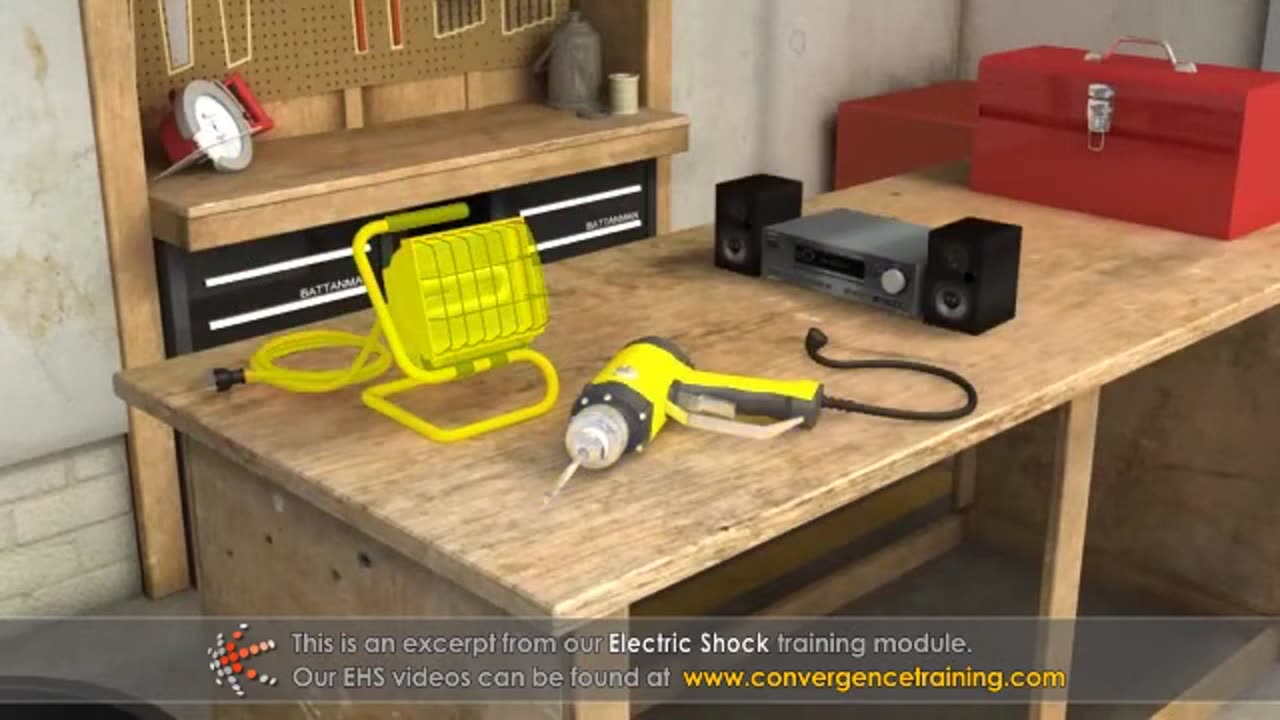Premium Only Content

Electric Shock Training
**Electric Shock Training** is designed to educate individuals about the risks of electric shock, how to prevent it, and how to respond in case of an incident. This training is essential for workers who operate in environments where electrical hazards are present, ensuring their safety and compliance with workplace safety standards.
---
### **Key Objectives of Electric Shock Training**
1. **Understanding Electrical Hazards**
- Explaining how electric shock occurs (e.g., contact with live wires, faulty equipment).
- Identifying common causes of electric shock in the workplace.
2. **Recognizing the Effects of Electric Shock**
- Overview of physiological effects:
- Tingling sensation to severe burns.
- Respiratory or cardiac arrest.
- Long-term effects on nerves and muscles.
3. **Workplace Hazard Identification**
- Identifying potential electrical hazards:
- Exposed wires.
- Wet conditions near electrical equipment.
- Overloaded circuits and faulty equipment.
4. **Preventive Measures**
- Implementing safety protocols, such as:
- Proper insulation of equipment.
- Use of **ground-fault circuit interrupters (GFCIs)**.
- Adherence to **lockout/tagout (LOTO)** procedures.
- Emphasizing the importance of PPE, such as insulated gloves, boots, and tools.
5. **Electrical Safety Rules**
- Observing approach boundaries to avoid accidental contact with energized components.
- Maintaining a safe distance from overhead power lines.
6. **Emergency Response to Electric Shock**
- Steps to take if someone suffers from electric shock:
- **Do not touch the victim until the power is turned off.**
- Shut off the power source or use a non-conductive object to separate the victim from the source.
- Administer CPR if necessary and call for emergency medical help.
- Training workers on **Basic Life Support (BLS)** and CPR techniques.
7. **Compliance with Standards**
- Overview of regulations such as **OSHA**, **NFPA 70E**, and local safety guidelines.
- Ensuring workplace compliance to mitigate risks.
---
### **Who Should Attend Electric Shock Training?**
- Electricians and maintenance personnel.
- Construction workers and contractors.
- Facility managers and supervisors.
- General workers exposed to electrical equipment.
---
### **Benefits of Electric Shock Training**
- Reduces workplace injuries and fatalities.
- Builds awareness of electrical hazards.
- Equips workers with the skills to respond effectively in emergencies.
- Promotes a safety-first culture in the workplace.
Would you like recommendations for training programs or further resources on specific aspects like CPR or PPE?
-
 6:54
6:54
HSESafetyInformation
1 month ago6 Must Try Breakfast recipes By Food Fusion
331 -
 2:05:10
2:05:10
Glenn Greenwald
8 hours agoAtlantic Leak Reveals Trump Admin's Foreign Policy Mindset; Appeals Court Extremely Skeptical of Trump's El Salvador Deportation Powers; Israel's Horrific Crimes in the Last 24 Hours | SYSTEM UPDATE #428
131K144 -
 1:53:20
1:53:20
megimu32
6 hours agoON THE SUBJECT: The Soundtracks That Raised Us – Iconic Movie Music from the 80s, 90s & Y2K
55.8K10 -
 3:01:26
3:01:26
Danny Polishchuk
10 hours agoEpstein Files + Government Group Chat Leaked with Guest Nick Bryant | Low Value Mail
40.9K5 -
 52:47
52:47
BonginoReport
8 hours agoDems Are LOST and The Biggest Losers Are Here To Help! (Ep. 11) - Nightly Scroll - 03/24/25
183K139 -
 53:58
53:58
Sarah Westall
6 hours ago“Millions and Millions have Died” Hidden Crimes of Big Pharma & Johnson & Johnson w/ Gardiner Harris
68.5K26 -
 1:40:49
1:40:49
Redacted News
9 hours agoSomething BIG is coming on April 2nd as Trump plans "Liberation Day in America" | Redacted News
267K319 -
 1:11:34
1:11:34
Kim Iversen
10 hours agoOops! Vance and Hegseth Accidentally Leak War Plans on Signal | Big WIN For Medical Freedom Movement
103K167 -
 1:06:30
1:06:30
TheSaltyCracker
9 hours agoSaltcast Stream 03-24-25
145K178 -
 54:16
54:16
LFA TV
1 day ago‘Anything Can Be Solved With Dialogue’ | TRUMPET DAILY 3.24.25 7PM
44.5K4